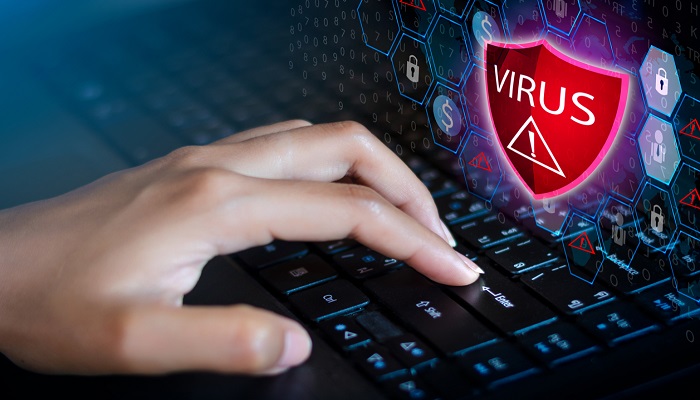Some of us still don’t know how we can protect a computer from virus attacks, for that reason, this post will guide us effectively
A Computer virus is a program or piece of written code, which may be loaded into a computer without the knowledge of the user.
It is capable of running automatically without permission and with a high possibility of causing severe damage or havoc to the PC. It can also replicate itself.
Not all computer users know much about this virus. Those who have good knowledge of it, or once had an experience of the effect, try to do their best to keep them away from their computer.
No matter how careful you may be with your PC, there are always tendencies that will warrant you to take extreme measures to protect your PC at least 99% from a virus.
In this post, I shall list and explain the best and easiest measures to avoid virus attacks on your PC.
What Are Computer Viruses?
Before we proceed, it’s crucial to understand what computer viruses are.
Computer viruses are malicious software programs designed to infiltrate and damage your computer.
They can spread from one computer to another, often causing data loss and system malfunction.
Ways to Protect Computer from Virus Attacks
1. Install Reliable Antivirus
An Antivirus is a computer application program that helps to detect, prevent, and remove viruses or any other malicious program that can harm your computer.
If it is a good Antivirus, it will provide your laptop with maximum security. But that doesn’t mean you should be ignorant, even if you purchased the best Antivirus and always update it.
From experience, I can tell you that no Antivirus can protect your computer 100%. So it’s not just having a good Antivirus, you should also try to block other loopholes from which your computer can be attacked.
2. Install only Trusted Software
Most computer users in this part of the world love free things. They keep downloading any free software they come across online, even from a website that is not sure of safety.
But I would like to let you know that most of this software was developed by hackers who planted some malicious programs inside the software.
They kept it free online, so you will download it, once it’s installed on your PC, it will grant them access to your PC or even cause some damage as well.
If you have a good Antivirus, it may detect and block it, while sometimes, the program may be stronger than your antivirus. So, therefore, you must only install Trusted Software on your computer.
3. Avoid Pirated Downloads
In addition to what I explained above, try as much as you can to avoid pirated downloads. You may be asking ‘how to know a particular download is pirated’, This is simple; download only from trusted websites. This is because most pirated files are infected with a virus.
4. Careful With External Storage
Your external storage device (Memory Card, Flash Drive, External Hard Disk, etc.) can easily get infected either when it’s used in an infected device, or when an infected file is copied into it.
The only remedy to this is to make sure you scan it with your antivirus whenever you want to use it or once it’s used on another computer.
5. Never Open Email Attachments Without Scanning
Always make sure you scan your email attachment before you open it, because it may contain a virus. Sometimes these emails may be coming from an unknown source, make sure you don’t risk it.
Also talking about email, be careful whenever you receive a link to a specific website you know nothing about, opening the link might get your PC infected.
6. Never Connect To An Open WiFi
If you easily connect or automatically get connected to any open WiFi connection your computer signals, I will like to discourage you from doing so.
Hackers may open a free connection; once you get connected to it without strong protection, they will be able to monitor all your activities, thereby making your PC porous.
They may also forward an inactive virus to you, which will develop and monitor all your activities for them without your antivirus detecting it.
7. Keep Your Operating System Updated
Ensure your operating system is regularly updated. Developers release security patches and updates to fix vulnerabilities that hackers could exploit.
Set your system to install updates automatically to stay protected.
8. Use a Firewall for Added Protection
Firewalls act as a barrier between your computer and potential threats from the internet.
Enable your computer’s built-in firewall or consider using third-party firewall software for added protection.
9. Regularly Update Your Software and Applications
Keep all your software and applications up to date. Outdated software can have vulnerabilities that hackers can exploit. Enable automatic updates whenever possible.
10. Exercise Caution While Browsing
Avoid visiting suspicious websites and downloading files from untrustworthy sources.
Stick to reputable websites and only download files from sources you trust.
11. Be Wary of Phishing Attempts
Phishing is a common tactic used by hackers to steal sensitive information. Be cautious of emails or messages that ask for personal or financial details. Verify the sender’s authenticity.
12. Use Strong and Unique Passwords
Create strong, unique passwords for your accounts. Use a combination of letters, numbers, and special characters. Avoid using easily guessable information like birthdays or names.
13. Enable Two-Factor Authentication (2FA)
Whenever possible, enable 2FA for your accounts. This adds an extra layer of security by requiring you to enter a temporary code sent to your phone or email during login.
14. Secure Your Wi-Fi Network
Secure your Wi-Fi network with a strong password and encryption. This prevents unauthorized access to your network and the devices connected to it.
15. Backup Your Data Regularly
Regularly back up your important data to an external drive or cloud storage. In case of a virus attack or data loss, you can restore your files from the backup.
16. Stay Informed About Security Threats
Stay updated on the latest security threats and trends. Knowledge is your best defense against evolving cyber threats.
17. Keep Your Hardware Clean
Dust and dirt can accumulate inside your computer, potentially causing overheating and hardware damage. Regularly clean your computer to ensure it functions optimally.
Conclusion
Protecting your computer against virus attacks requires a proactive approach.
By following the steps outlined in this article, you can significantly reduce the risk of falling victim to malicious software.
Your computer’s security ultimately depends on your actions and vigilance.
Remember, taking preventive measures and staying informed are your best allies in keeping your computer safe from virus attacks.
RELATED ARTICLES
- 5 Best Free Antivirus For Computers and Laptops
- 5 Working From Home Security Tips to Prevent Cyber Attacks
- How to Best Secure Password Using Special Characters
- List Of Top 50 Best Search Engines In The World
Related Tags: computer virus pdf | what is a computer virus and types of virus? | types of computer virus | ways to protect your computer from viruses | what is a virus in computer | computer virus names.


